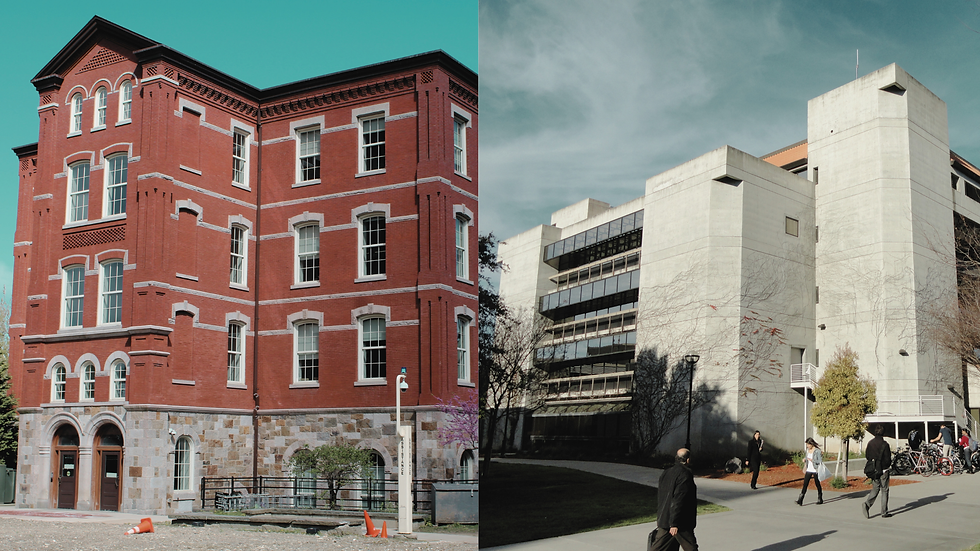Harsh Sentences for Iranian Student Activist Arash Sadeghi
- Ebby Abramson
- Mar 8, 2016
- 3 min read
Updated: Mar 12, 2022
An appeals court in Iran has upheld the 15-year prison sentence of student activist Arash Sadeghi for “collusion against national security,” “propaganda against the state,” “spreading lies in cyberspace,” and “insulting the Founder of the Islamic Republic [Ayatollah Ruhollah Khomeini].”
Sadeghi’s sentence was confirmed without taking into consideration Article 134 of Iran’s New Islamic Penal Code, which limits a prison term to the heaviest sentence of the most serious charge in cases of multiple charges.

Sadeghi told the International Campaign for Human Rights in Iran that his lawyer, Amir Raeesian, was not allowed to be present at the opening session of his trial. Raeesian was allowed to attend the second session but wasn’t permitted to read the case file. Before the appeals court hearing, Raeesian was only able to see a portion of the file.
Political prisoners and prisoners of conscience in Iran are routinely subjected to due process violations such as denial of full access to counsel or a lawyer’s full access to case files.
“I was charged with ‘collusion against national security’ because I supported a group of poor students who had been denied education and for supporting leftist students and visiting families of those who had been killed, and for taking part in peaceful gatherings, such as . . . protests against the execution of Gholamreza Khosravi and gathering in support of [imprisoned women’s rights activist] Narges Mohammadi,” Sadeghi told the Campaign, adding that the verdicts were issued by Branch 54 of the Appeals Court.
Sadeghi’s wife, Golrokh Iraee, an accountant with no previous criminal record, has also been sentenced to six years in prison for “propaganda against the state” and “insulting the Sacred.”
Sadeghi said that since their arrest, he and his wife have lost their livelihood and are relying on savings. He was forced to sell his share of the stationery store he coowned, and his wife was let go from her job.
“There’s nothing to back the charge of ‘insulting the Sacred’ against my wife. All she did was write stories, one of them about a person who did not believe in God. They really didn’t have a case against her. They just wanted to frame her,” Sadeghi said.
“Golrokh and I were interrogated simultaneously in two adjacent rooms. I could hear the interrogator’s voice. When Golrokh was released on bail, my interrogator [lied and] said she had been moved to another location because she hadn’t cooperated. I was worried about her wellbeing on top of the pressures from my own interrogator. Then after two months we had our first phone conversation, and I realized she had been released,” he added.
“When I was in jail, my wife chose Mr. [Peyman Haj-Mahmoud] Attar as our lawyer. At the time he was also the lawyer for two labor and political activists, and he told my wife it would be better if we found another lawyer. With his help, my wife chose Mr. Raeesian for our case. Before the trial, Mr. Raeesian went four times to the Revolutionary Court office at Branch 15, but he was not allowed to study my file."
“I was accused of insulting Ayatollah Khomeini because of a couple of posts I wrote about the 1980s on my Facebook page. But I did not make any reference to him. I only quoted historical statements and gave my own analysis. Unfortunately the court did not pay attention to what I had to say,” Sadeghi said.
“I was also charged with spreading lies online because I had posted news about political prisons on my Facebook page. And I was charged with ‘propaganda against the state’ because I had given interviews about how the Gonabadi Dervishes as well as [other] religious minorities had been denied their rights. I also gave an interview about solitary confinement."
Sadeghi, 36, was arrested on September 6, 2014 at his stationery store in Tehran by the Sarallah Headquarters of the Revolutionary Guards’ (IRGC) Intelligence Organization. He was detained with his wife and two friends in the Intelligence Organization-controlled Ward 2-A of Evin Prison.
Sadeghi was released on seven billion Iranian rials (US $230,000) bail seven months later on March 14, 2015. His wife Golrokh Iraee, 35, was released on one billion rials (US $33,000) bail.
Initially, Sadeghi and Iraee were tried at Branch 15 of the Revolutionary Court in May and July 2015 by Judge Abolqasem Salavati. Iraee was in the hospital and was not able to attend, but the judge refused to postpone the trial to hear her defense.
Judge Salavati’s verdicts were upheld by the Appeals Court on December 22, 2015.
Sadeghi was previously arrested in July 2009, March 2010, and January 2012 for allegedly participating in protests against the widely disputed results of the 2009 presidential election, but he was conditionally released each time. His mother, Farahnaz Dargahi, died in November 2009—four days after she suffered a heart attack following a raid of her home by security agents.



